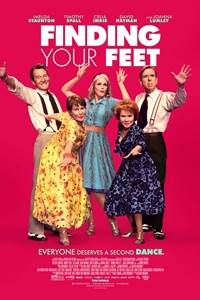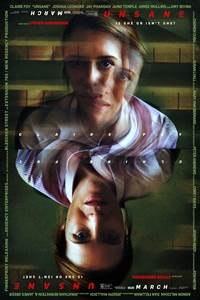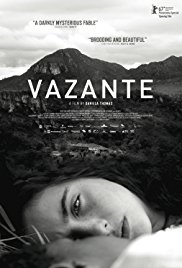Despite a great cast and message, ‘Finding Your Feet’ trips
Directed by: Richard Loncraine
Written by: Meg Leonard and Nick Moorcroft
Starring: Imelda Staunton, Celia Imrie, Timothy Spall, Joana Lumley, and David Hayman
“Finding Your Feet” – “You make feel like dancing. I’m gonna dance the night away.” - Leo Sayer, October 1976
Sandra (Imelda Staunton) has not felt like dancing in decades. Thirty-five years to be exact. Now, she has enjoyed her marriage to Mike (John Sessions) for that said amount of time, but dancing was never a priority for him and therefore, not a priority for her. Dancing – her childhood passion – just tucked itself away into a distant place in her brain, sitting next to her belief in Santa Claus and the joy of Saturday night drive-in movies. Her time, instead, became consumed with keeping Mike happy, maintaining their huge home and socializing with his colleagues and their friends. On the surface, they have a successful marriage, but looks can be deceiving. Sandra unexpectedly discovers that Mike is having an affair with her friend, Pamela (Josie Lawrence).
Mike and Pamela immediately shack up, and Sandra moves in with her sister, Bif (Celia Imrie).
This, of course, begs the question: Since Mike cheated on Sandra, why should she leave their gorgeous estate?
Well, in director Richard Loncraine’s (and writers Meg Leonard’s and Nick Moorcroft’s) world, Sandra no longer lives in the house, because the narrative illogically calls for it. This is just one example of lazy writing that unfortunately becomes a recurring theme for 1 hour and 51 minutes in “Finding Your Feet”, a film with good intentions and a very likable cast.
Timothy Spall, Joanna Lumley and David Hayman join Staunton and Imrie, as they play 60 and 70-somethings who relish their local dance group and prove that age is never a limit to have fun and embrace life. Charlie (Spall), Jackie (Lumley), Ted (Hayman), and Bif already possess this enlightenment, but Sandra needs lots of convincing. Living with her sister will lay the groundwork, while they foster their roles as an “Odd Couple”, a female Felix-Oscar duo.
The film embodies dual roles too. It volleys between light comedy and troubling drama about reaching the third trimester of life. For instance, Jackie brings down the house with a hilarious reason for her fifth marriage’s failure, but then Charlie desperately struggles with his wife’s illness. Loncraine devotes generous screen time to his supporting players, and these moments are well-spent in helping tap into the audience’s emotions. Sandra bears the longest journey to redefine the rest of her life and cope with wasted decades but puts her best foot forward (pardon the pun) with Bif’s help.
With very capable actors and dance as a backdrop, “Finding Your Feet” has all the ingredients of a warm, cathartic and relatable picture, but it excels in isolated moments. We get flashes of what the movie strives to be, but it is missing connective tissue. Sure, we care about these characters, but the vehicle for reaching their nirvana – the dance team itself – ironically becomes an afterthought.
What is the name of their dance group? That’s a great question.
What is the cute and bubbly dance instructor’s name? According to imdb.com, her name is Corrina.
The dance group receives two opportunities to perform in front of live audiences, but – organically – how do these chances materialize? Well, Corrina (if that is her name) walks into the dance hall and announces their upcoming performances to the class, like a director stepping on a set and saying, “Okay people, quickly, let’s get ready for the next scene. Isn’t this exciting?”
How often do the students practice for the big events, and are they ever stressed about performing? Hardly ever and no.
Although, Sandra (spoiler alert) oversleeps for the grand finale and rushes around town to arrive on time. This, of course, raises concern for everyone on-screen, but meanwhile, the movie audience might wonder why this particular dance recital begins at 8 a.m. or so. Your guess is as good as mine.
It is not terribly difficult to guess the number of ensemble films that tackle significant life changes during a lead character’s golden years. They are somewhat rare, so this critic appreciates Loncraine’s attempt with “Finding Your Feet”. The picture is a harmless time at the movies, even though the film trips along the way, but “Unfinished Song” (2012) – starring Terence Stamp, Vanessa Redgrave and Gemma Arterton – is a story about a widower joining his late wife’s choir group. That 2012 film works much, much better and is everything that “Finding Your Feet” wants to be. I don’t know if “Finding Your Feet” will make you feel like dancing, but I am nearly certain that “Unfinished Song” will make you feel like singing. Just a thought and a light suggestion.
(2/4 stars)
Jeff – a member of the Phoenix Critics Circle – has penned film reviews since 2008 and graduated from ASU’s Walter Cronkite School of Journalism. Follow Jeff and the Phoenix Film Festival on Twitter @MitchFilmCritic and @PhoenixFilmFest, respectively.



















































